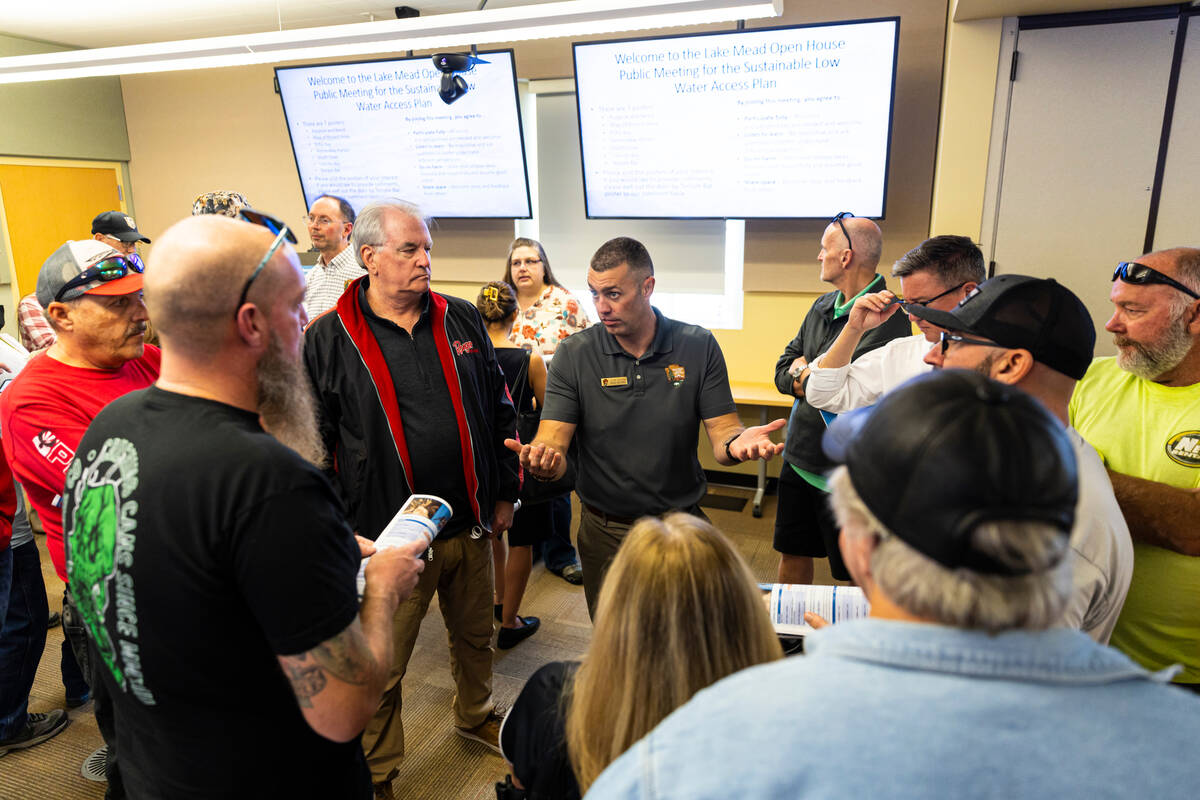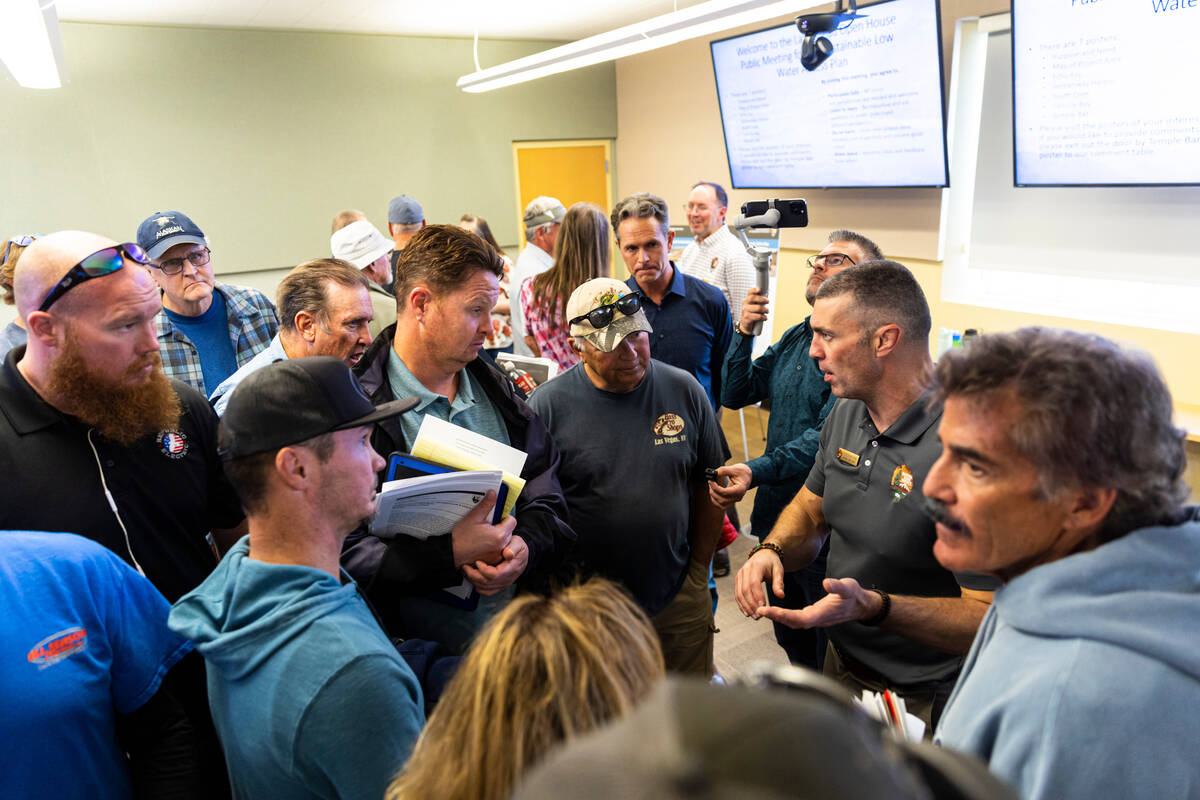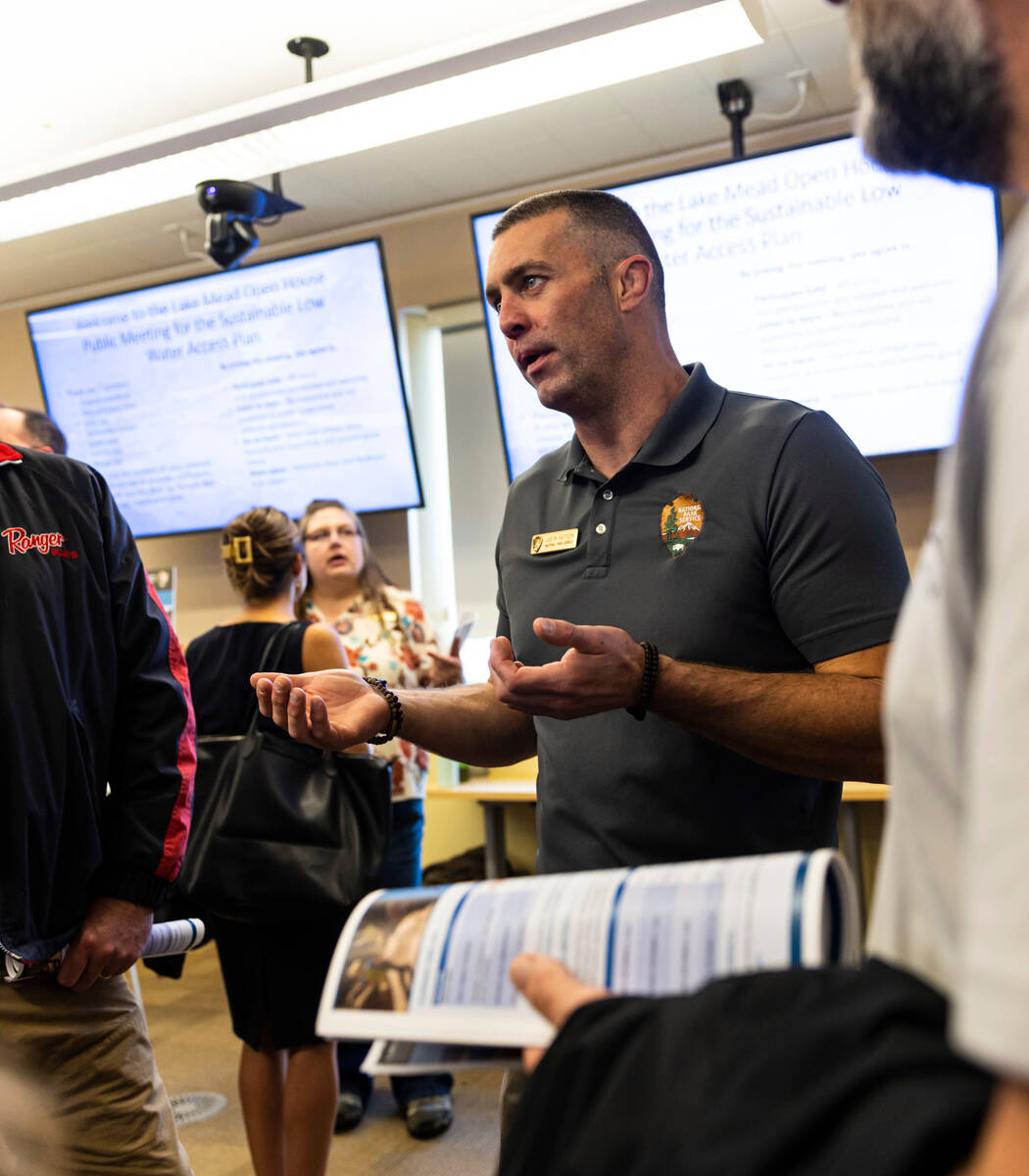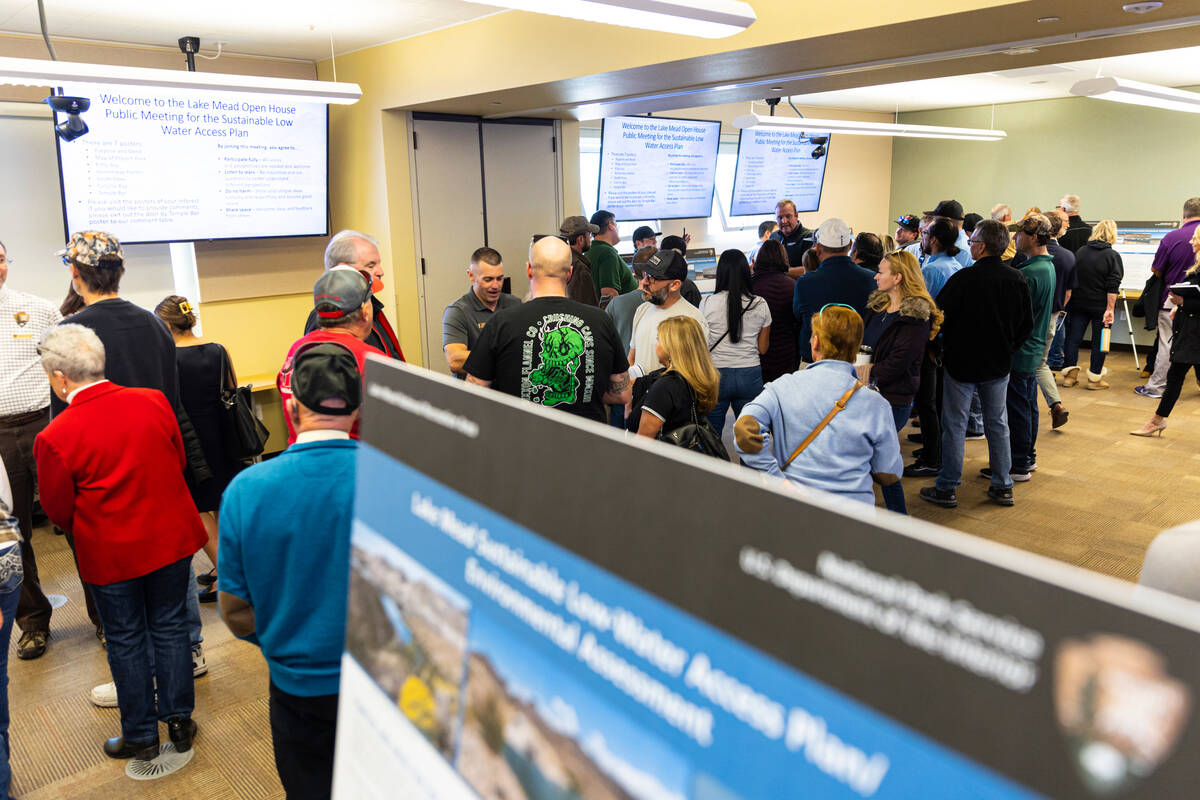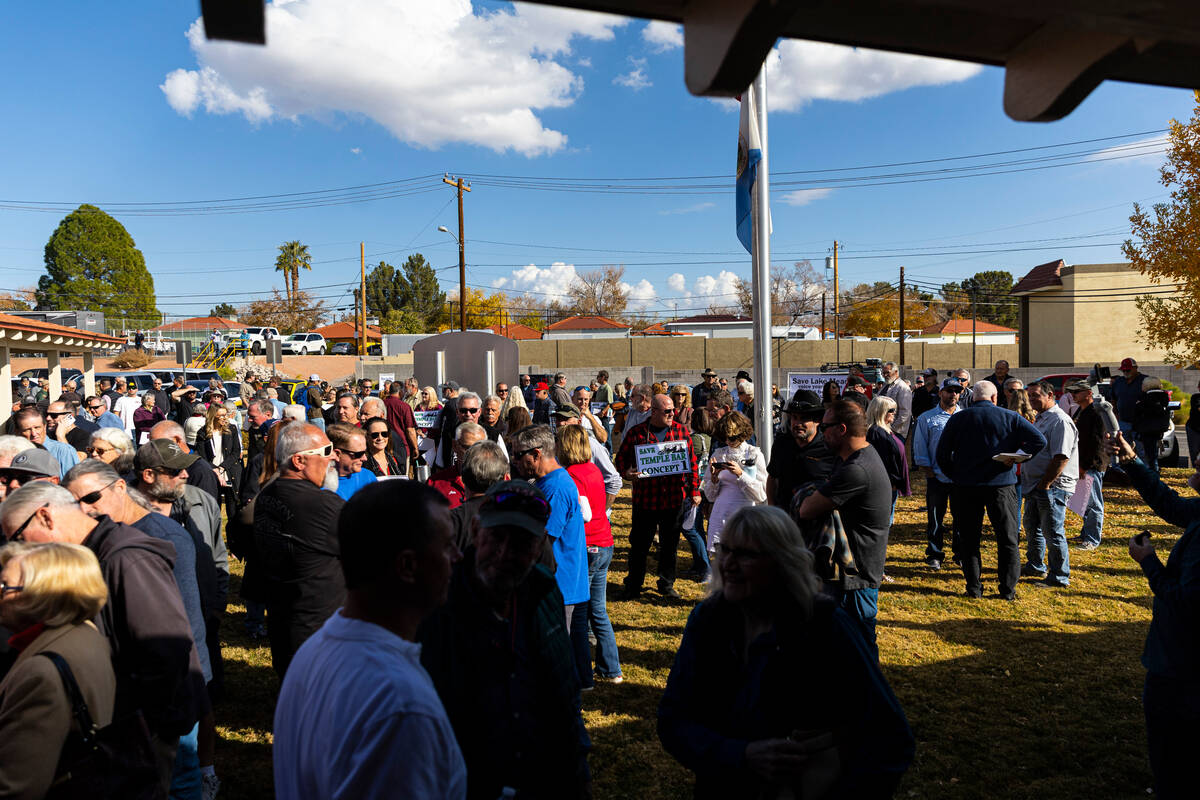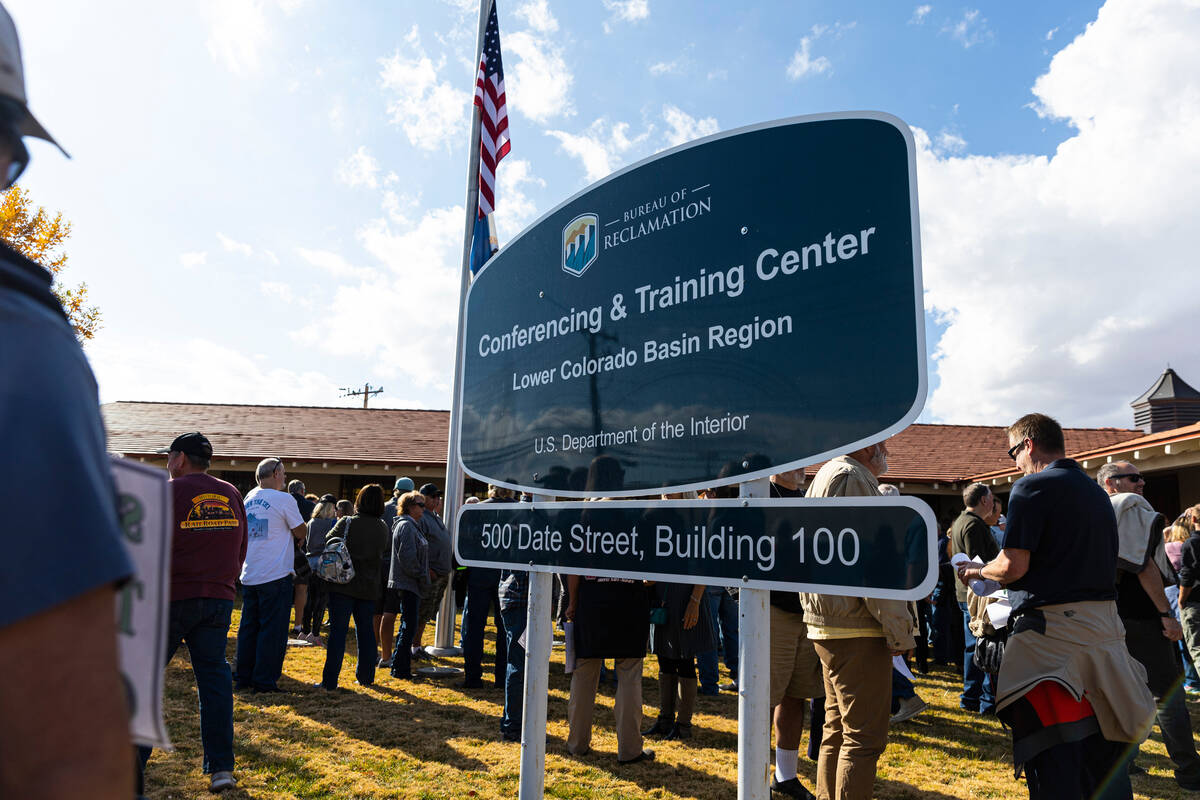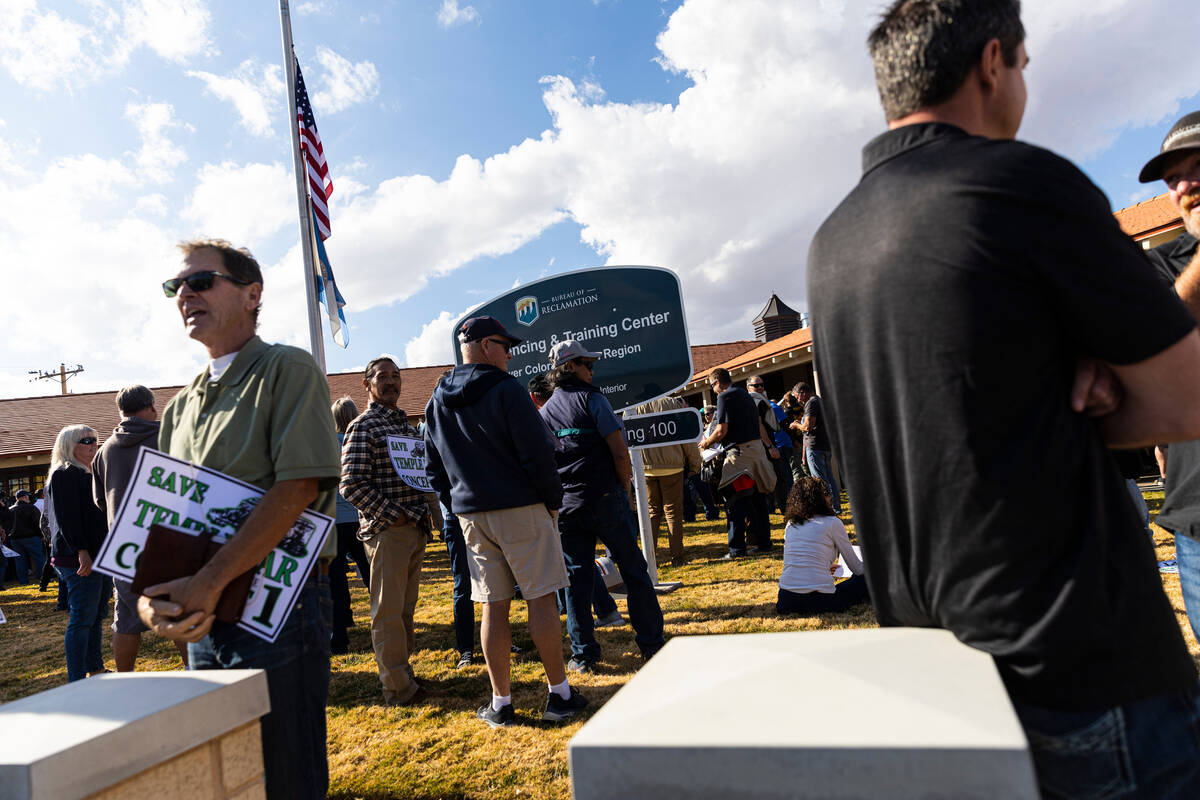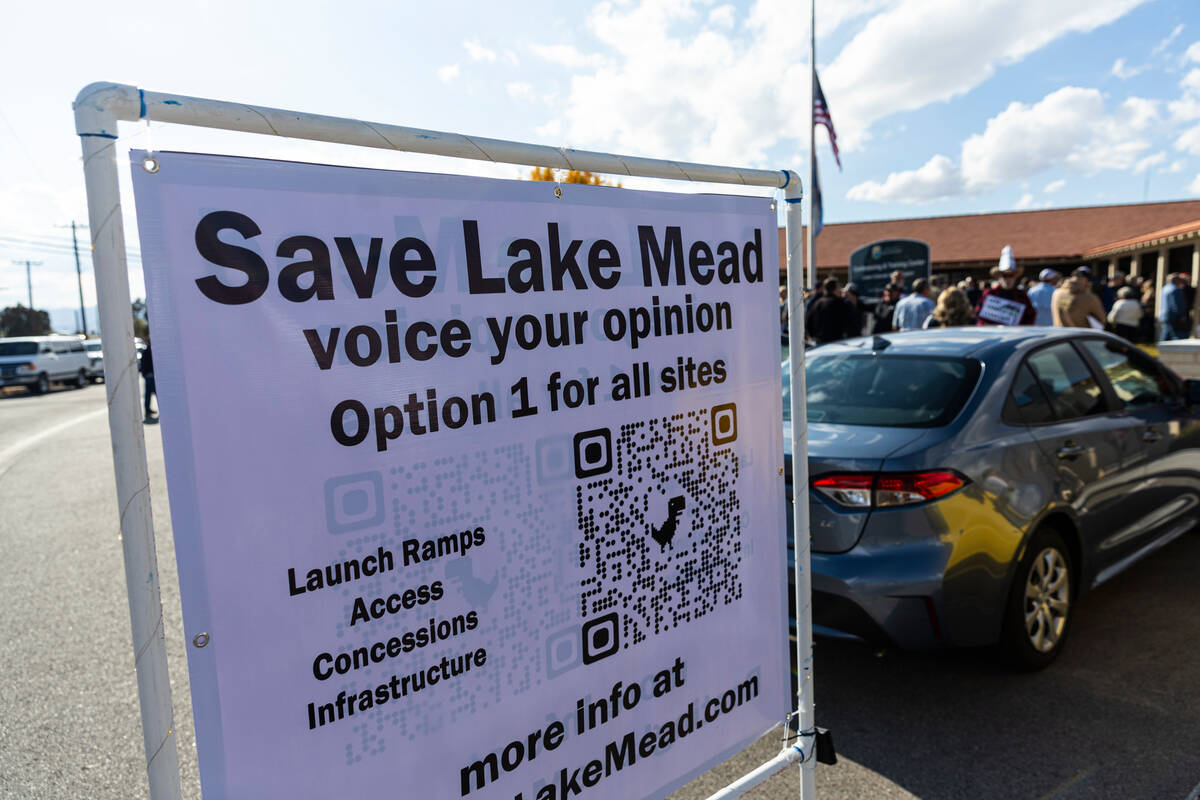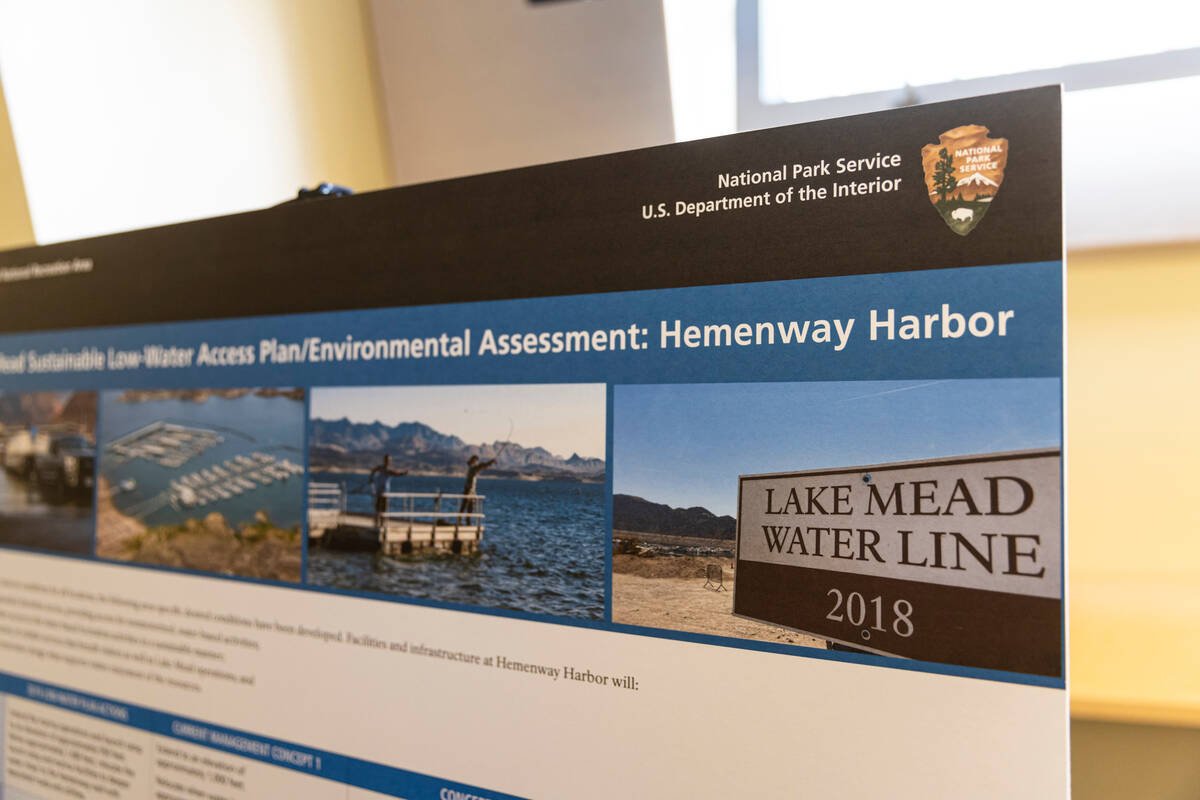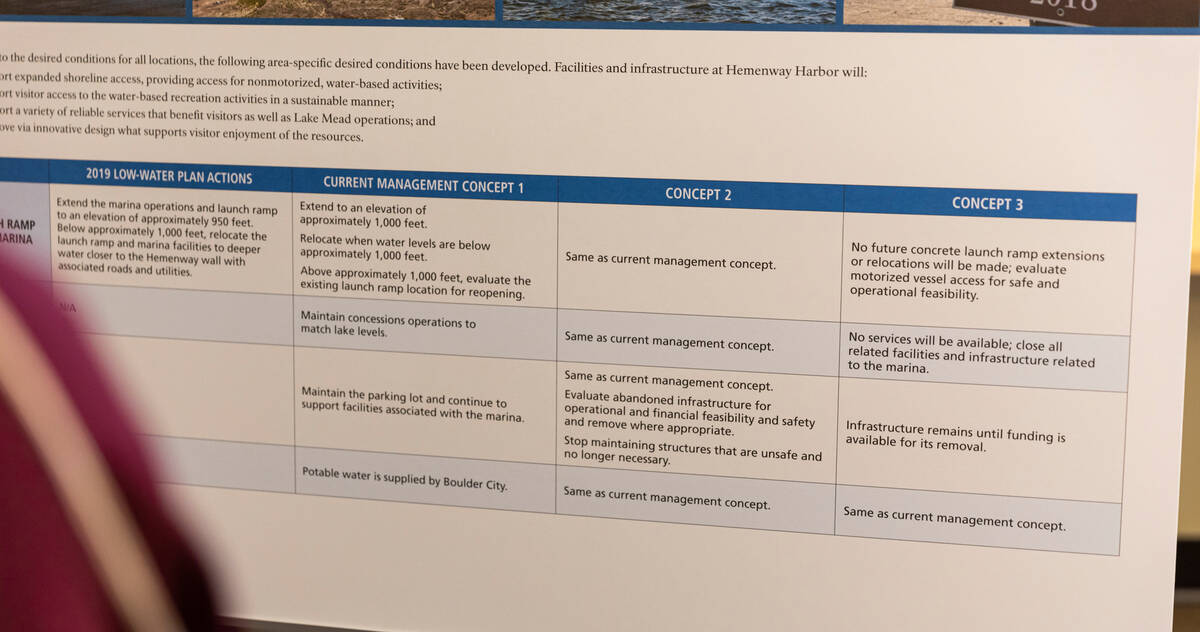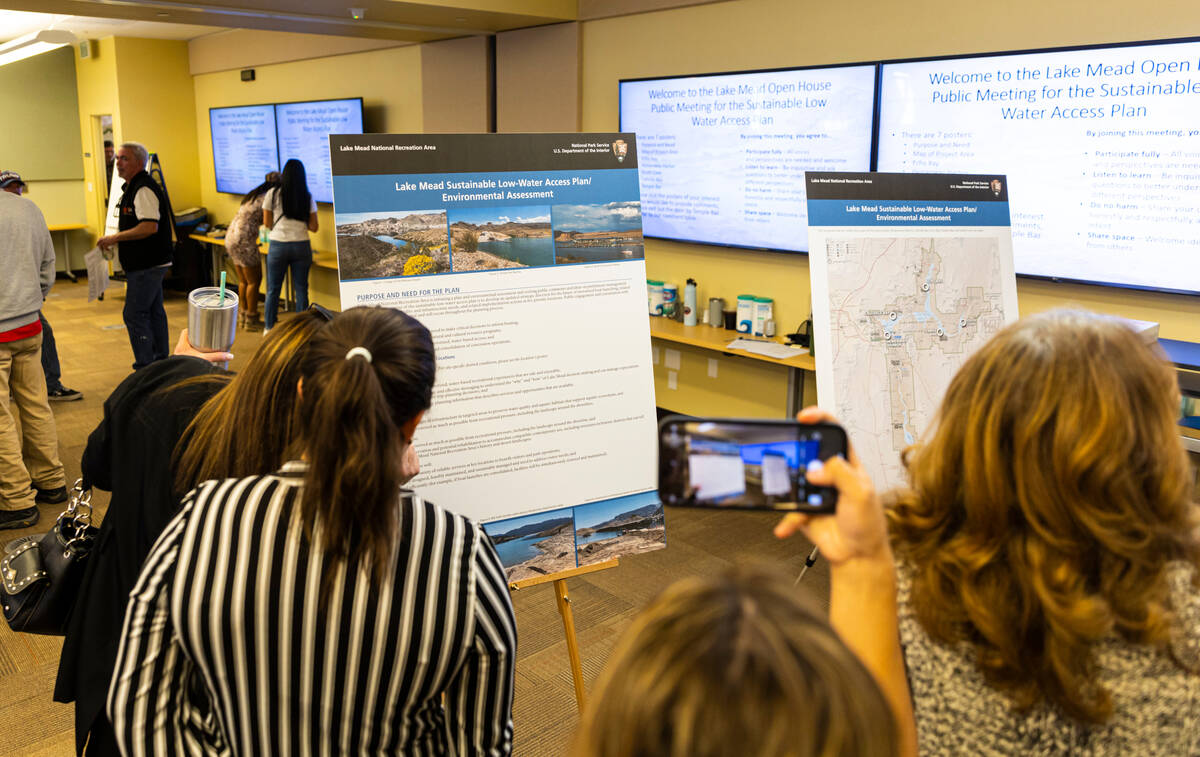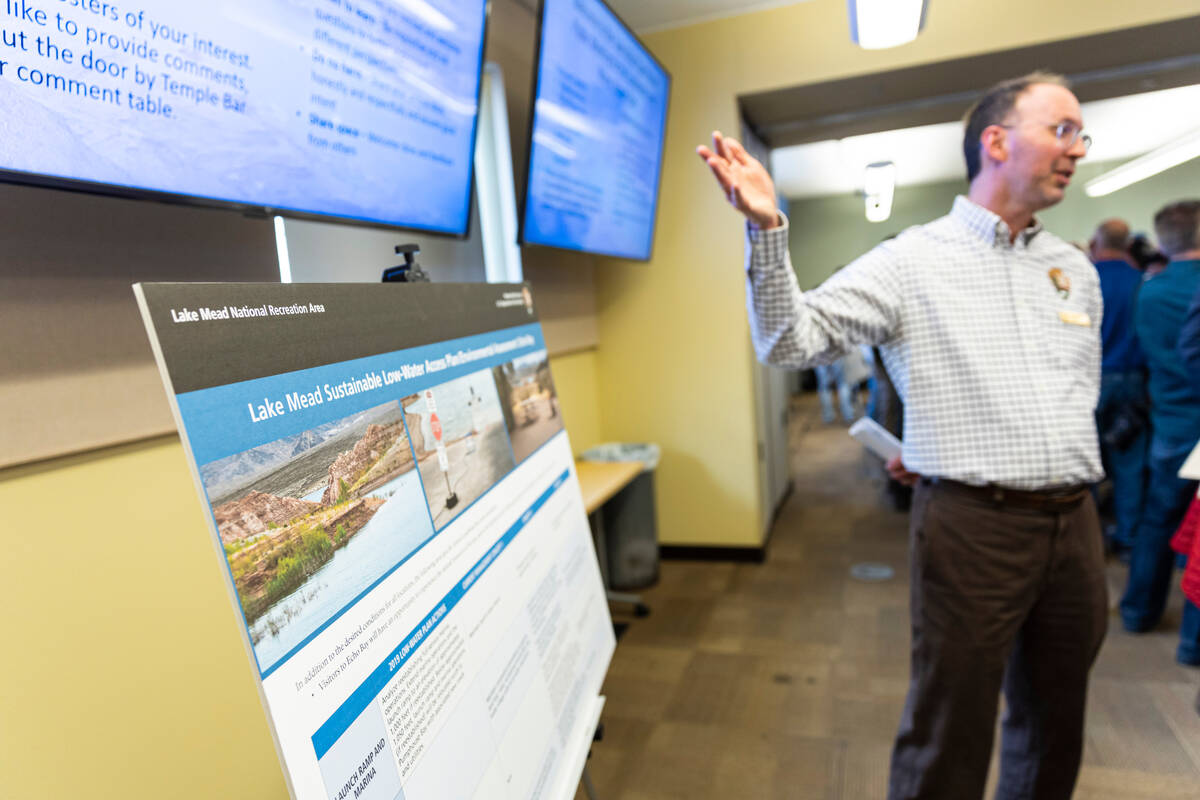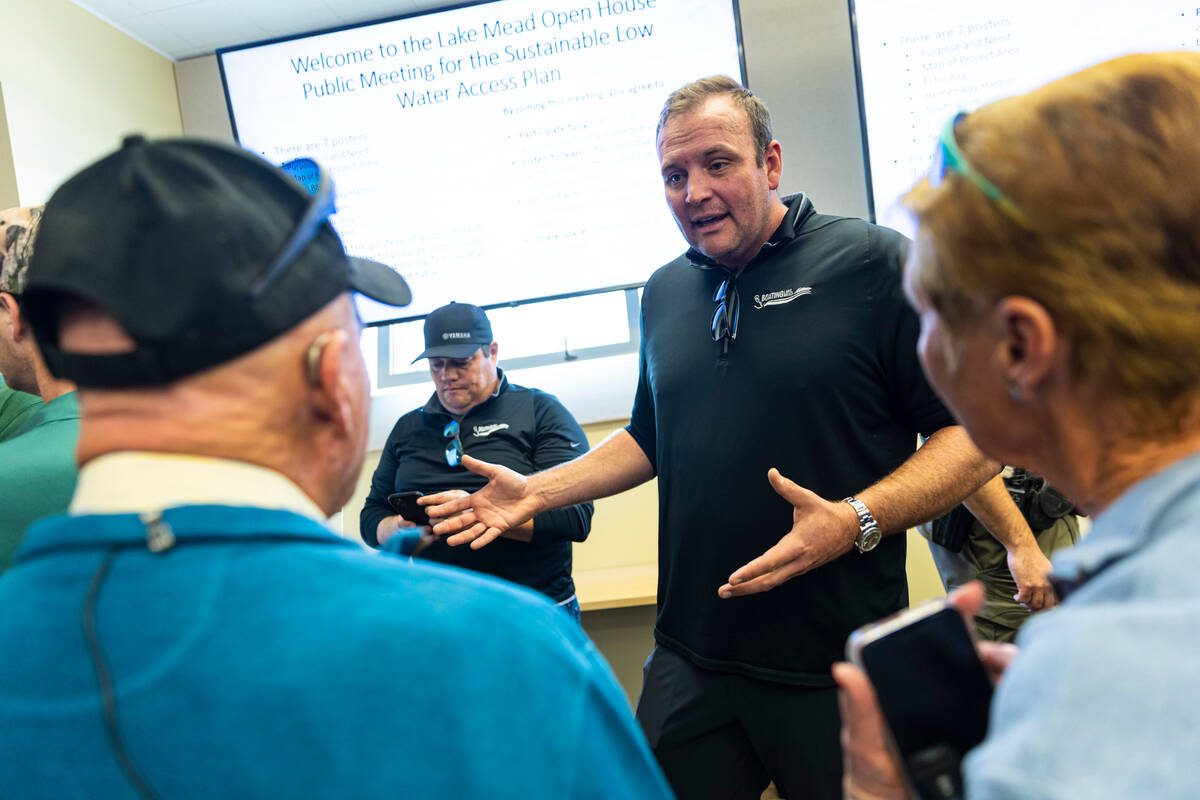Hundreds defend boating at Lake Mead
Max Convis never imagined a day when park officials would even consider the option of restricting boat access to Lake Mead, a reservoir he has boated on for half a century.
But with water levels at the nation’s largest reservoir expected to continue declining amid chronic overuse along the Colorado River and a 23-year megadrought, it’s an option that was staring Convis in the face on 4-foot tall poster boards Wednesday, Dec. 7, in Boulder City.
Last month, the park service sent out a newsletter indicating that it was starting the process for planning the future of boat launch ramps at five marinas at Lake Mead: Temple Bar, Echo Bay, Hemenway Harbor, Callville Bay and South Cove.
The newsletter listed three options for each location, which include maintaining current management plans, extending launch ramps as the lake continues to shrink, relocating some of the ramps, or another concept in which the park service does not extend or relocate the launch ramps at all.
Convis, a 69-year-old resident of Henderson, was one of hundreds who showed up to voice opposition to that option during a meeting put on by the National Park Service in Boulder City to discuss the future of boating access at the lake.
“It doesn’t make any sense,” said Convis. “They talk about turning it into a non-motorized lake. Well people my age, we don’t go kayaking and paddle boarding around. We want to enjoy the lake.”
Hoping for answers
Some were hoping for answers at Wednesday’s meeting, which looked more like an open house than a typical government meeting, with people gathering around various park officials to ask questions about the different options for each of the marinas the park is evaluating.
Bruce Nelson, director of operations at Lake Mead Marina, said the organization of the meeting was a mistake on the park service’s part because there was a perception that it would be more of a formal gathering where people could enter comments into the public record rather than the informal conversations that ended up happening.
“It really is just some poster boards,” he said. “If you don’t write something down, if you don’t record it and put it in recorded history, no one’s going to remember what I just said.”
Still, Nelson, whose family has owned Lake Mead Marina since 1957, doesn’t see a future where the park service takes the drastic step to cut off boating access at the lake.
Even at its current elevation, Nelson says Lake Mead is still very good for boating; he even believes beaches are nicer at that elevation than at the reservoir’s maximum height of just more than 1,200 feet. The only thing missing is the boat launch infrastructure to make it work.
“We used to build rockets that went to the moon. We used to build great dams. We used to do all this great stuff,” Nelson said. “We’re going back to the moon but we can’t build launch ramps? Come on.”
Dwindling boat ramps
The falling water levels at Lake Mead have pinched access in recent years. The park service in May closed the launch ramp at Echo Bay, which leaves Hemenway Harbor as the only official launch ramp on the reservoir that typically sees 7.5 million visitors a year, an estimated 20 percent of whom are boaters.
Lake Mead’s surface currently sits just above 1,043 feet in elevation, or roughly 28 percent of its capacity. It has fallen about 170 feet in elevation since the drought gripped the Colorado River and its tributaries dating to 1999.
Nevada Sen. Jacky Rosen sent a letter to the National Park Service Director Charles Sam asking for a plan on how and when it would reopen the five closed launch ramps.
In a statement Wednesday, Rosen encouraged those who are affected by the closures to provide input to the park service.
“We have to find a solution to this issue, which is impacting local businesses and our outdoor recreation economy, and my team and I will continue to monitor this situation, engage with NPS, and fight for Nevada’s outdoor recreation businesses.”
Justin Pattison, deputy superintendent for Lake Mead National Recreation Area, answered questions from concerned boaters for the better part of two hours, and said the day was all about getting as much input from the public as possible.
Pattison encouraged people to submit their comments to the park service through its online portal on agency’s website before the submission period ends Dec. 23.
Costly moves
Moving the marinas and launch ramps and the construction associated with those moves aren’t cheap, and recently have only lasted a short period of time before the falling lake levels required even further extensions.
Pattison said the various concepts for each marina plan is based on different levels of funding that would be available and emphasized that no decision has been made to close any parts of the lake.
“It becomes very expensive very quickly to invest in all of these locations with concrete,” he said.
The park service is also exploring other options beyond permanent concrete extensions in partnership with their marina operators, including temporary launch ramps that can be moved up and down as the water level shifts.
Asked by a reporter what would have to happen for the park service to go through with the options to restrict boating access to the lake, Pattinson replied that it’s hard to say.
“We currently don’t know how quick the water levels are going to continue to decline over the next several years,” he said.
Wednesday’s meeting was part of the early stages of the decision making process, and the park service hopes to have that process wrapped up by May of next year, Pattison said.
“This is just the first step,” he said.
Contact Colton Lochhead at clochhead@reviewjournal.com. Follow @ColtonLochhead on Twitter.

